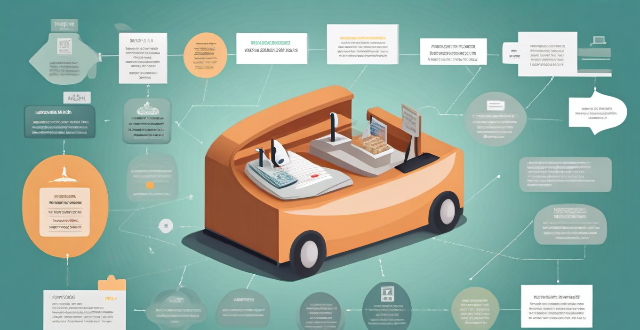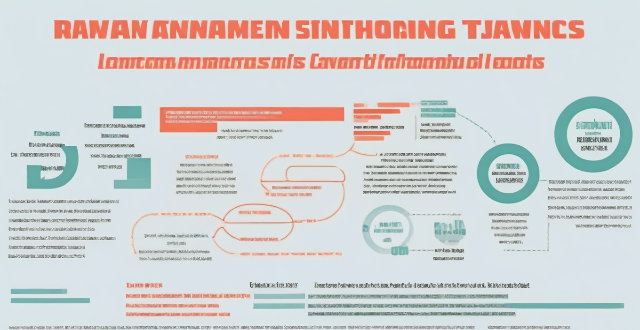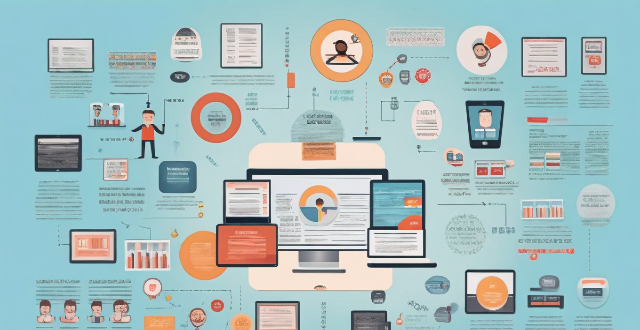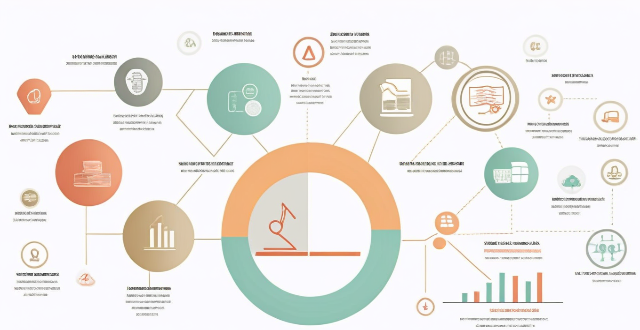Credit Consumer

How do interest rates affect credit management strategies ?
Interest rates significantly influence credit management strategies by affecting the cost of borrowing, returns on savings, and serving as a tool for monetary policy. To mitigate their impact, individuals and businesses can diversify their portfolios, consider short-term loans, refinance debt, and maintain good credit history.

How do financial regulations affect consumers ?
Financial regulations protect consumers from fraud, promoteFinancial regulations protect consumers from fraud, promote credit, outline consumer rights, promote competition, ensure access to credit, outline consumer rights, and contribute to financial stability.

What is credit monitoring and why is it important in credit management ?
Credit monitoring is the process of tracking and analyzing a borrower's credit history, including payment behavior, outstanding debts, and changes in credit scores. It is important for early warning signals of potential default or delinquency, accurate risk assessment, fraud prevention, customer relationship management, and compliance with regulations. By continuously monitoring a borrower's credit history, lenders can update their risk assessments, prevent fraud, tailor their products and services to better meet their customers' requirements, and ensure they are meeting regulatory requirements.

What are the legal aspects to consider in credit management ?
Credit management involves various legal considerations, including contract law, consumer protection laws, privacy laws, bankruptcy laws, state and federal laws, and collections practices. Businesses must ensure that their contracts are legally binding, disclose all relevant information about their credit products, protect customer data, understand bankruptcy laws, comply with usury laws and licensing requirements, and adhere to the Fair Debt Collection Practices Act. By considering these legal factors, businesses can maintain strong relationships with their customers while minimizing financial risks.

What role does credit scoring play in credit management ?
This article discusses the importance of credit scoring in credit management. It explains what credit scoring is, its role in risk assessment, fairness and objectivity, efficiency and accuracy, customization, and compliance with regulations. The article emphasizes that credit scoring is a crucial tool for lenders to evaluate borrowers' creditworthiness and make informed decisions about approving loans.

Can I get a mortgage with bad credit ?
Getting a mortgage with bad credit is possible but may be more challenging and come with less favorable loan terms. To increase your chances, check your credit score, work on improving it, shop around for lenders, consider alternative options like FHA or VA loans, and be prepared to make a larger down payment.

Is there a correlation between ESG performance and consumer trust ?
ESG performance is crucial for companies and can enhance consumer trust, leading to increased loyalty and sustainable growth.

How does climate change affect consumer behavior ?
Climate change is affecting consumer behavior by increasing environmental awareness, changing shopping habits, driving a shift towards green energy, promoting sustainable food choices, and inspiring advocacy and activism. As consumers become more conscious of their impact on the environment, they are making changes in their purchasing habits to reduce their carbon footprint. Businesses that prioritize sustainability will be better positioned to succeed as consumers continue to make eco-friendly choices.

What impact does consumer confidence have on economic recovery ?
Consumer confidence is a key driver of economic recovery. It stimulates growth, boosts employment rates, reduces unemployment, and increases government revenue. To improve consumer confidence, governments should encourage stable economic policies, provide financial education, promote transparency, and invest in infrastructure.

How does green packaging impact consumer behavior ?
Green packaging, using eco-friendly materials, impactGreen packaging, using eco-friendly materials, impacting environmentally conscious consumers, impacts consumer behavior by attracting environmentally conscious consumers, enhancing brand image, influencing purchasing decisions, reducing waste, creating a positive shopping experience, and encouraging sustainable practices. This trend is expected to continue growing as consumers become more aware of environmental issues.

In what ways can bad credit management lead to financial difficulties for a company ?
Poor credit management can lead to cash flow issues, increased costs, damage to supplier relationships, negative impact on business reputation, and legal implications. To mitigate these risks, companies should establish clear credit policies, conduct regular credit checks, maintain open communication with customers, leverage technology for payment tracking, and consider third-party services or credit insurance.

Can celebrity endorsements impact consumer purchasing decisions ?
Celebrity endorsements can influence consumer purchasing decisions due to psychological, marketing, and social factors. Celebrities as role models can shape aspirations, while their likability and trustworthiness enhance the appeal of endorsed products. Marketing-wise, celebrity endorsements boost brand awareness and perceived quality. Socially, they drive trends and peer pressure. The impact is affected by the celebrity's relevance, image, consumer skepticism, and market saturation.

How can companies use credit management to improve cash flow ?
Credit management is crucial for companies extending credit to customers. Strategies include implementing a credit policy, conducting credit checks, monitoring receivables, offering multiple payment options, incentivizing timely payments, using automated tools, and periodically reviewing and adjusting processes. These steps can help reduce bad debts and improve cash flow.

Can you explain the process of credit analysis in credit management ?
Credit analysis is a crucial process in credit management that involves evaluating the creditworthiness of a borrower or a counterparty. The process includes gathering information on personal data, financial data, and credit history, analyzing this information through credit score analysis, financial statement analysis, and industry analysis, and determining creditworthiness based on capacity to repay, collateral, and covenant analysis. Finally, a decision is made on whether to extend credit to the borrower or not.

What is credit management ?
Credit management is the process of managing and controlling the use of credit by individuals or businesses. It involves evaluating borrowers' creditworthiness, determining the amount of credit to extend, monitoring loan repayment, and taking action for late payments. Key components include credit analysis, evaluation, loan monitoring, collections management, risk management, and customer relationship management. Effective credit management benefits include reduced default risk, improved cash flow, increased customer satisfaction, and enhanced reputation.

How often do credit card rewards expire ?
This text provides an in-depth analysis of credit card rewards expiry. It explains the various types of rewards and their typical expiration timelines, including cashback rewards, travel points, and other benefits. The article also offers tips on how to maximize the value of these rewards before they expire, such as staying organized, planning ahead, redeeming early, exploring redemption options, and negotiating with your credit card issuer if necessary. Overall, it emphasizes the importance of understanding the terms and conditions of credit card rewards to make the most of them.

How can I improve my credit score and maintain good credit history ?
Maintaining a good credit score is vital for securing loans, mortgages, and even some jobs. To improve your credit score and maintain good credit history, consider the following tips: 1. Pay bills on time to avoid late payments that can significantly impact your credit score. 2. Avoid defaulting on loans by contacting the lender to discuss options if you're struggling to make payments. 3. Keep balances low and increase credit limits to lower your utilization rate. 4. Keep old accounts open and space out applications for new credit to maintain a healthy length of credit history. 5. Diversify your types of accounts to show that you can handle different types of credit responsibly. 6. Limit hard inquiries and apply for credit only when necessary. 7. Check your credit report regularly to ensure there are no errors or fraudulent activity dragging down your score. 8. Use credit wisely and monitor your credit score to keep an eye on progress. 9. Educate yourself on how FICO scores work and the factors that influence them to make more informed financial decisions. By following these guidelines, you can establish and maintain a strong credit profile that will serve you well in your financial life.

How does social media influence consumer behavior ?
Social media has transformed consumer behavior by increasing brand awareness, influencing purchasing habits, and changing perceptions of brands. It enables consumers to compare products, share feedback, and engage with companies directly. Social media also plays a crucial role in product development by providing insights into consumer needs and preferences. Companies can foster customer loyalty through engagement and exclusive deals on these platforms. The rise of social commerce allows for direct purchases within apps and live streaming sales events. Personalization and targeted marketing, including influencer collaborations, further impact consumer choices. Overall, social media's influence on consumer behavior is significant and continues to evolve with technological advancements.

Can sports sponsorship influence consumer purchasing behavior ?
Sports sponsorship is a marketing strategy that aims to increase brand awareness and positively influence consumer attitudes towards the brand. It works by providing increased exposure, building an emotional connection with consumers, enhancing the brand's image, and differentiating from competitors. The impact on consumer purchasing behavior can be direct or indirect, including immediate sales boosts, product trials, brand loyalty, and word of mouth recommendations. Measuring the impact involves analyzing sales data and tracking brand metrics. Success stories like Nike and Michael Jordan and Coca-Cola and Olympic Games demonstrate the potential of sports sponsorship. However, challenges and pitfalls exist, such as misaligned partnerships and overshadowing controversies. In conclusion, sports sponsorship can significantly influence consumer purchasing behavior when executed strategically and appropriately.

How do student loans impact credit scores ?
Student loans can significantly impact credit scores, positively throughStudent loans can significantly impact credit scores, positively through diversified credit mix, and Best practices for managing student loans include making payments on time, keeping balances low, and exploring forgiveness or repayment options to protect and enhance financial standing.

How do banks manage credit risk ?
Banks manage credit risk through a variety of methods and strategies to ensure the stability of their operations and protect against potential losses. They identify and assess credit risk using credit scoring models, financial analysis, and credit reports. They mitigate credit risk through diversification, collateral and guarantees, and credit derivatives. Banks monitor and control credit risk by ongoing monitoring, loan loss reserves, and regulatory compliance. In case of credit risk events, banks recover through workout agreements, legal recourse, and communication with stakeholders. By employing these strategies, banks aim to minimize credit risk while still providing essential lending services to support economic growth and individual prosperity.

How do I maximize my credit card rewards ?
Maximizing Credit Card Rewards: Tips for Earning More Credit card rewards can be a valuable way to save money and earn cash back, travel points, or other perks. To maximize your rewards, it's important to choose the right credit card, use it regularly, take advantage of bonus categories, and track your rewards. You should also combine rewards with other discounts, consider a card with an annual fee, avoid unnecessary fees, monitor your credit score, and don't overspend. By following these tips, you can make the most of your credit card rewards while using them responsibly.

What is the Consumer Confidence Index and how does it impact the economy ?
The Consumer Confidence Index (CCI) is a measure of consumer sentiment about the economy. It impacts the economy by serving as an indicator of economic health, influencing spending habits, affecting policy decisions, guiding business strategies, and causing market reactions. Overall, the CCI helps stakeholders make informed decisions based on consumer confidence levels.

How does credit management work in a bank ?
Credit management is a crucial function of banks that involves assessing and managing the risks associated with lending money to individuals and businesses. The process includes evaluating borrowers' creditworthiness, using credit scoring models to determine risk, making loan decisions, servicing and monitoring loans, and managing credit risk through diversification and risk management strategies.

How does credit history influence insurance rates ?
The text discusses how credit history influences insurance rates. Insurers use credit history as a predictor of future claims and risk, with studies showing that individuals with poor credit histories are more likely to file claims and cost insurers more money than those with good credit histories. Several factors can affect insurance rates based on credit history, including payment history, amount owed, length of credit history, and types of credit used. Maintaining a strong credit history can potentially save money on insurance premiums and demonstrate financial responsibility to insurers.

How does technology impact credit management practices ?
Technology has revolutionized credit management practices by automating processes, enhancing data analysis capabilities, and streamlining communication channels. Automated credit scoring systems save time and reduce human error, while accounts receivable management software helps businesses track outstanding invoices and initiate collections actions if necessary. Technology also enables businesses to monitor changes in a borrower's creditworthiness in real-time, allowing them to make informed decisions about extending credit or adjusting terms. Enhanced data analysis tools like artificial intelligence and machine learning help businesses gain insights into customer behavior and make better-informed decisions about extending credit. Predictive analytics can identify potential risks, sentiment analysis gauges customer sentiment towards products or services, and fraud detection technology reduces the risk of financial losses due to credit card fraud or identity theft. Streamlined communication channels such as online portals, mobile apps, and chatbots powered by AI improve customer service and efficiency in credit management practices. Overall, technology has had a profound impact on credit management practices and will continue to do so as it evolves.

How can individuals participate in a carbon credit system ?
Carbon credit systems enable individuals to participate in reducing greenhouse gas emissions by buying, selling, or supporting carbon offsets. Individuals can offset their own carbon footprint by purchasing credits from verified projects, sell credits generated from their sustainable projects, or support the growth of carbon credit initiatives through advocacy and investment. Participation in these systems is a significant step towards combating climate change and fostering a more sustainable environment.

What are the common challenges faced in credit management ?
Credit management is a crucial aspect of any business, but it comes with several challenges. These include late payments, high-risk customers, inaccurate information, fraudulent activities, regulatory compliance, resource constraints, customer retention, technology adoption, global expansion, and data privacy. Addressing these challenges proactively and implementing effective strategies can improve credit management processes and minimize associated risks.

What is the role of credit rating agencies in bond investing ?
Credit rating agencies are pivotal in bond investing, offering independent assessments of issuers' creditworthiness. They conduct thorough analyses and assign ratings reflecting the likelihood of default, aiding investors in risk evaluation and portfolio diversification. These ratings contribute to market transparency, efficient price discovery, and enhanced liquidity. They also play a role in regulatory compliance for institutional investors and capital markets regulation. However, concerns about conflicts of interest and rating accuracy during crises highlight the need for improved methodologies and increased accountability.

How can small businesses improve their credit management ?
Credit management is an essential aspect of running a successful business. It involves managing the company's debt, ensuring timely payments to vendors and suppliers, and maintaining a good credit score. Here are some tips on how small businesses can improve their credit management: 1. Set up a system for tracking invoices and payments. 2. Negotiate better terms with vendors and suppliers. 3. Pay bills on time. 4. Monitor your credit score regularly. 5. Keep personal and business finances separate. 6. Seek professional advice when needed.